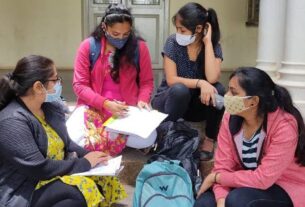More than 960 madrasas in the state are facing problems in providing regular education.
Students studying in madrasas are not able to continue their education for the past two years. Mainly because these institutions are unable to provide online classes due to a lack of funds.
Mohammad Iqbal is one of those children who did not attend any class during the pandemic. Instead, he started helping his family to earn a living. He studied in a madrasa and continued to get his taleem (education) only after the lockdown was lifted. “Madrasa does not conduct online classes like other schools,” he said.
There are others like Iqbal, who could not continue with their studies as online education was never an option for them.
Mostly students with poor financial backgrounds study in a madrasa as the education is free, and madrasa does not take religion into consideration. “A total of 20 students completed the course during the pandemic by staying back in the madrasa as we could not afford to conduct online education like other schools,” said Mohammad Rasheed, principal at Madarsa e-Darul Uloom Rasheediya, Shampura, Bengaluru.
Lack of regular donations forced him to spend his own money. “We still are not able to manage the expenses due to lack of donations but will not be closing our madrasa like the others,” he added.
Donation is one of the biggest sources of funding for madrasas in Bengaluru. So, any break of flow in receiving the funds affects the students’ learning, Shashi Kumar, an educationist said.
Research found that many madrasas continue to remain shut despite the lifting of Covid norms.
“Since the first lockdown our madrasa is closed and will remain so, as currently, we cannot function due to financial constraints,” said Mujahidul , incharge of Madrarsa Anas Bin Malik Rz, Hoskote, Bengaluru.
Another research states that in India, 5,78,101 students study in madrasas, and 30 per cent of these students are in urban madrasas.
There has been a decrease in students attending madrasas after the pandemic. “A lot of students studying in the madrasas were from the neighbouring parts of the city, and have not rejoined due to which there is a decrease in the number of students,” Umm Hasaan, incharge of Naushad Noorul Huda Madarsa, Whitefield, Bengaluru.
“Not only the madrasa, but even the primary schools are yet to come out of the wrath of the pandemic which created a huge learning gap. so madrasas are the secondary schools providing education,” Kumar said. Such religious schools are not supported by the government, as a result, students in these institutions end up with no access to proper and regular education, he added.





